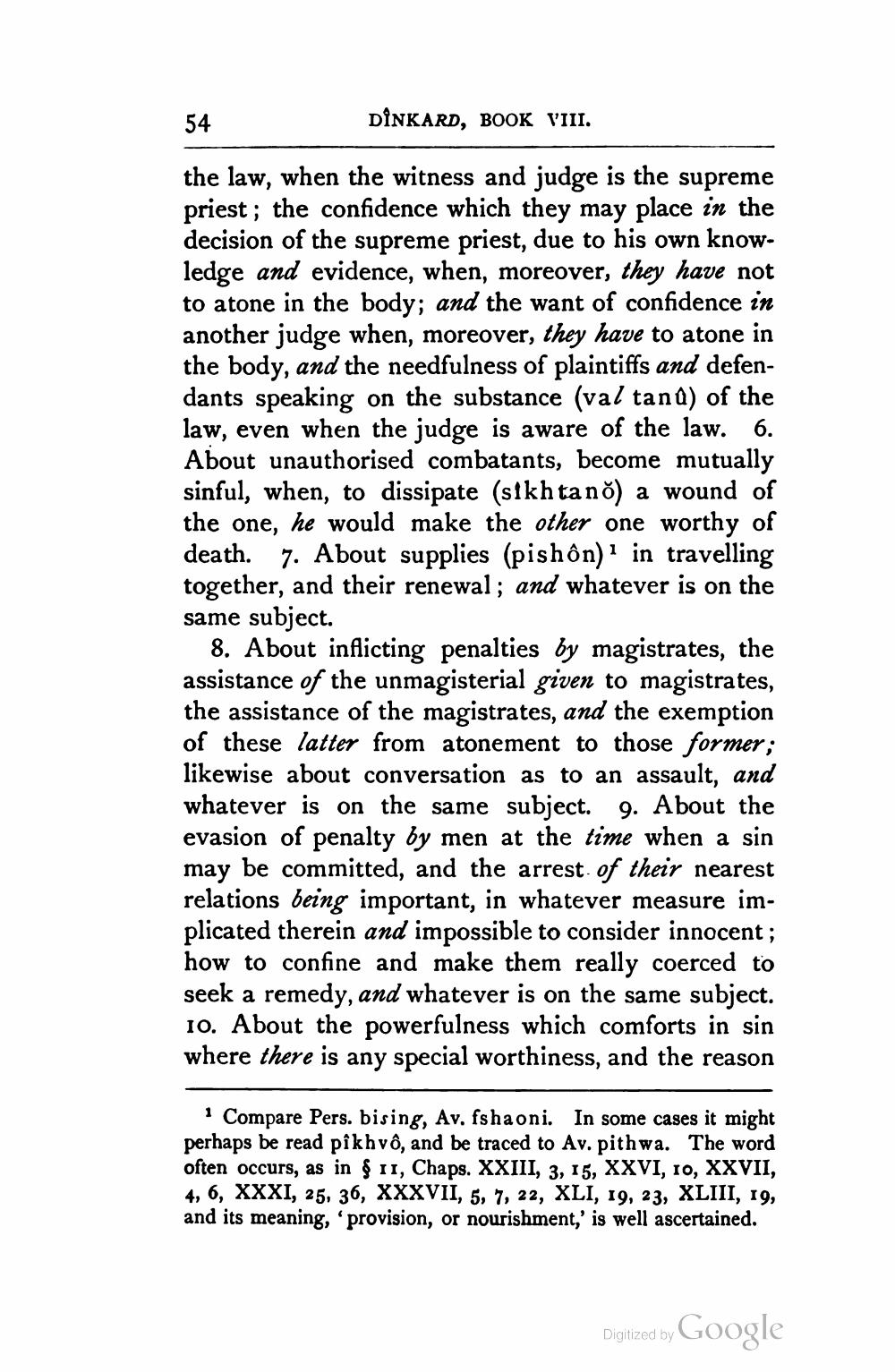________________
54
DÎNKARD, BOOK VIII.
the law, when the witness and judge is the supreme priest; the confidence which they may place in the decision of the supreme priest, due to his own knowledge and evidence, when, moreover, they have not to atone in the body; and the want of confidence in another judge when, moreover, they have to atone in the body, and the needfulness of plaintiffs and defendants speaking on the substance (val tand) of the law, even when the judge is aware of the law. 6. About unauthorised combatants, become mutually sinful, when, to dissipate (sikhtano) a wound of the one, he would make the other one worthy of death. 7. About supplies (pishôn); in travelling together, and their renewal; and whatever is on the same subject.
8. About inflicting penalties by magistrates, the assistance of the unmagisterial given to magistrates, the assistance of the magistrates, and the exemption of these latter from atonement to those former; likewise about conversation as to an assault, and whatever is on the same subject. 9. About the evasion of penalty by men at the time when a sin may be committed, and the arrest of their nearest relations being important, in whatever measure implicated therein and impossible to consider innocent; how to confine and make them really coerced to seek a remedy, and whatever is on the same subject. 10. About the powerfulness which comforts in sin where there is any special worthiness, and the reason
1 Compare Pers. bising, Av, fshaoni. In some cases it might perhaps be read pikhvô, and be traced to Av. pithwa. The word often occurs, as in $ 11, Chaps. XXIII, 3, 15, XXVI, 10, XXVII, 4, 6, XXXI, 25, 36, XXXVII, 5, 7, 22, XLI, 19, 23, XLIII, 19, and its meaning, provision, or nourishment,' is well ascertained.
Digitized by Google




